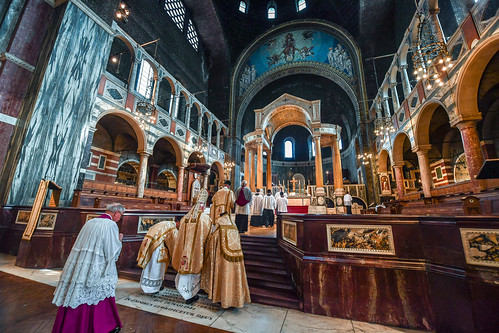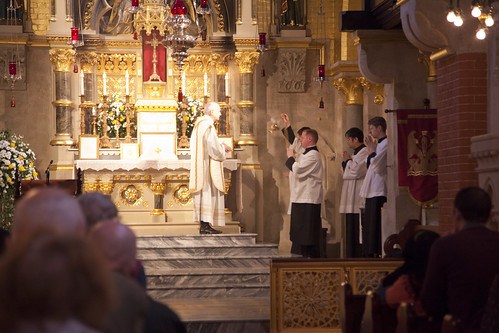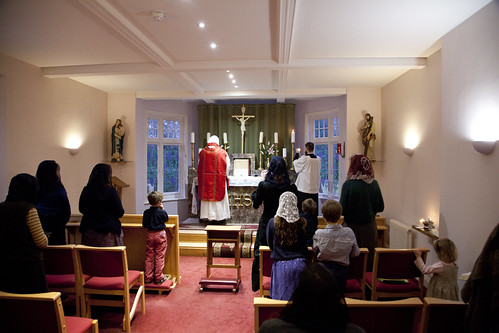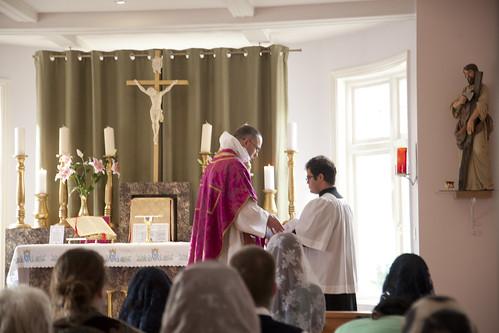 |
Bishop Campbell processing into the sanctuary of Westminster Cathedral
to celebrate Mass for the LMS in 2019. Photo by John Aron.
|
I have been reading a very interesting document from the Latin Mass Society's archives, an unpublished history of the early years of the Society by Geoffrey Houghton-Brown: Notes on the Struggle to Retain the Roman Liturgy, 1964-1972
Houghton-Brown, an artist and convert, was a founding member of the LMS, at first a Vice President and later Chairman and Diocesan Representative for Westminster. His history of these eight years is quite comprehensive, and every now and then he makes an interesting observation.
Archbishop John Carmel Heenan was made a cardinal in 1965, just when some of the pomp and ceremony of the occasion, in Rome and on his return to Westminster Cathedral, was being abolished, including the "canopy of state" which was held over his predecessors as they entered the Cathedral. This is Houghton-Brown's comment.
----------------
I do not imagine that the Cardinal refused the customary canopy in order to be better seen [as suggested by the report in The Times] but in order to comply with the Pope's wish for "simplicity". If these customary symbols of high office are abandoned the office itself, be it of Pope, King, Bishop, Judge, or Mayor, will lose its significance, its dignity, its solemnity. By the sight of these symbols we recognise that which they represent. High Office must be made visible in order to be recognised and it can only be made visible by such symbolic and customary signs as the canopy of state, the crown, the mitre, the Judge's wig and robes, the Mayor's chain etc. Remove symbols and you lesson, even destroy, all respect, for authority.
In connection with the canopy of state it should be noted that The Times (of February 26th) reported that "The public Consistory has, however, lost some of its pomp, just as it has lost the great cardinal's hat beneath which the new princes of the Church used to swear their oath before the Pope -- the great cardinal's hat has now vanished altogether from the formalities of creating members of the Sacred College."
In comparison with other reforms now taking place the suppression of the cardinal's red hat may seem extremely trivial but nonetheless it is extremely significant, indicating as it does the loss of an emblem bound up with the history of the Roman Church. A generation that has no reverence for the past is doomed to become rootless, isolated, adrift. This is the sin condemned in the commandment of Moses, - if you do not hold your ancestors in honour you will not keep for long the inheritance that they handed down to you. The keeping of this commandment is the secret of the miraculous survival of the Jewish race. It is by the preservation of their ancient laws, festivals, fasts, and liturgical language that the Jews have kept their racial identity. Pope Paul is advocating a policy of ecclesiastical suicide when he announces that the Church will "despoil herself -- of that old royal mantle -- in order to reclothe herself in more simple manner suitable to the taste of to-day." The disappearance of the canopy of state and the red hat may be small matters but like certain small marks on the body they can indicate a deadly disease.






